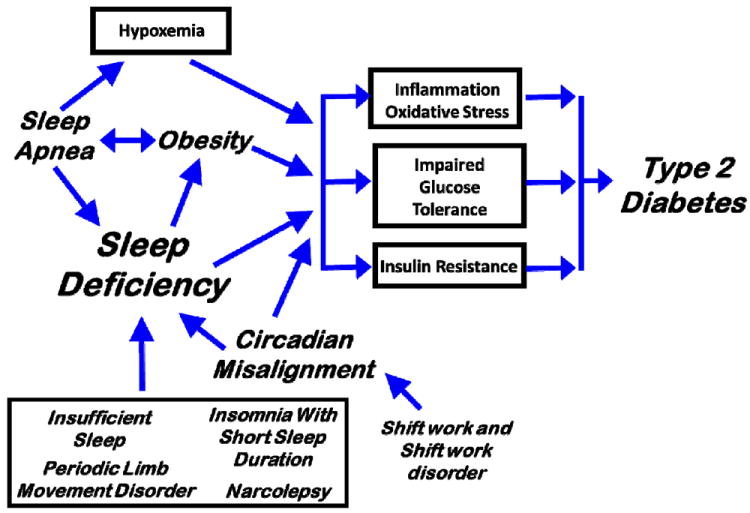Figure 1.

Model of the hypothesized relationships between sleep and circadian disorders and type 2 diabetes. Sleep deficiency can result from several sleep and circadian disorders including insufficient sleep, periodic limb movement disorder (PLMD), insomnia and narcolepsy. By working at times that overlap with the normal sleep opportunity, shift work and shiftwork disorder can induce circadian misalignment contributing to sleep deficiency. There is a bidirectional relationship between obesity and sleep apnea and apnea results in both hypoxemia and sleep deficiency. Sleep deficiency is also associated with increased risk of obesity. Sleep deficiency, circadian misalignment, obesity and hypoxia are associated with increased inflammation, oxidative stress, impaired glucose tolerance and insulin resistance. Thus, sleep problems likely increase type 2 diabetes risk through multiple pathways.
